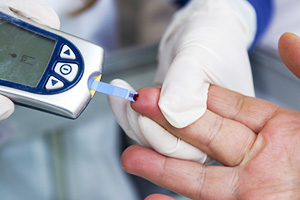Understanding the Lipitor Lawsuit – or, How a Little Pill Used for Treating Cholesterol Led to Type 2 Diabetes.

We have said it a thousand times here on this blog. You HAVE to keep track of your medical history and overall health and do what you can to research the risks associated with whatever prescription or over-the-counter drugs you consider taking. Even when your doctor prescribes you medication to treat an illness or help prevent an illness you are at risk of developing, it is important that you take the time to research the drug yourself and talk to your doctor about your questions or concerns. You likely know your medical history and the illnesses that your family deals with better than anyone else, including your doctor; instead of approaching your doctor as if he or she knows all of the answers and your concerns do not matter, try to participate in your treatment by reminding your doctor — who is often very busy and handling an increasing number of patients — of your concerns, patient history or families’ medical risk factor history.
However, there are times when all of the important research you do before you start taking a new medicine can go, not wasted, but unrewarded. Case in point: the new Lipitor lawsuit.
In 2010 a number of studies started being published linking the danger of developing type 2 diabetes to the use of the popular LDL (otherwise known as the “bad”) cholesterol-lowering drug Lipitor. Manufactured by Pfizer, Lipitor is a medicine in the statin class of drugs, meaning its intention is to lower cholesterol. The exact number of patients who have taken statin drugs in the last few years is unknown; however there are estimates that at least 30 million Americans purchased at least one statin medication in 2005 alone (http://www.forbes.com/2008/10/29/cholesterol-pharmacuticals-statins-biz-cx_mh_1030cholesterol.html). That’s a lot of people to expose to the possibility of developing type 2 diabetes.
We all know that lowering “bad” cholesterol is good. But developing type 2 diabetes in part because of your use of a statin drug such as Lipitor is definitely very bad, too.
What does the development of type 2 diabetes mean?
Well, in addition to the risk factor of developing or having heart disease (what the statin medication Lipitor is prescribed for), being diagnosed with type 2 diabetes means that your body is no longer able to properly use insulin, which means that you are more at risk for nerve or kidney damage, heart and blood vessel disease, osteoporosis, even Alzheimer’s disease.
Having or being at risk for heart disease is bad enough. Adding type 2 diabetes to the equation is unforgivable — and, unfortunately, all of the research you could have done would not have paid off with your decision on whether or not to take Lipitor, because the information about the link between developing Type 2 diabetes and Lipitor use was not available to the consumer in the way that it should have been. What’s more, despite the more recent push by the FDA to insist that Pfizer includes a warning about developing type 2 diabetes on their prescribing labels, Pfizer has not recalled Lipitor, meaning more patients can be put in harm’s way to develop type 2 diabetes while trying to minimize their unhealthy cholesterol levels.
If you are a woman with a Body Mass Index of 31 or lower who has developed type 2 diabetes while taking Lipitor, your diabetes could be due to your use of the drug. To find out more and see how you can participate in the Lipitor lawsuit, call our law firm for a completely free consultation at 1.866.844.4556. Our lawyers are here to make this process easy and understandable for you — on top of all of the health complications, you do not need to deal with the typical law firm mumbo jumbo! Our goal is to help you, always.
